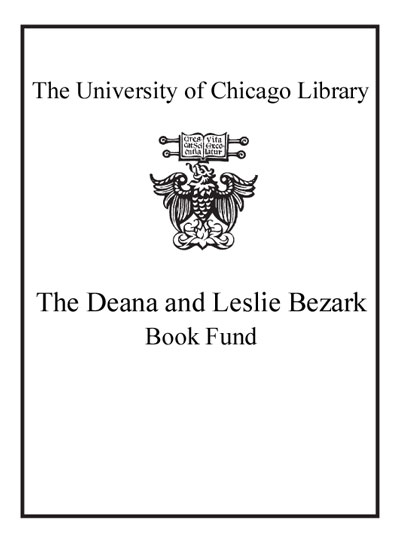Review by Booklist Review
These 23 stories by both male and female writers all center on female Ashkenazi in twentieth-century Europe, Russia, Israel, and the U.S. Three of the writers are well-known: Isaac Bashevis Singer ("Yentl, the Yeshiva Boy" and "Androgynous"), Sholem Aleichem ("Hodel"), and I. L. Peretz ("Bryna's Mendl"); but others are not so well known. (One of the stories, "A Satin Coat," is by Esther Singer Kreitman, the sister of I. B. Singer and I. J. Singer.) The stories concern thwarted lovers, unwilling brides, poor immigrants, and rebellious daughters. The range of themes includes anti-Semitism, assimilation, the obstacles that young women faced if they sought an education, the survival strategies they had to adopt in order to realize their ambitions, and the challenges and difficulties they encountered after establishing independent lives. In her perceptive introduction, Francine Prose points out that many of these stories concern women who must fight just to express an opinion\b \b0 of their own or to exert the slightest influence on the shape of their own destinies. Translated from Yiddish, these stories are a definite pleasure. --George Cohen Copyright 2003 Booklist
From Booklist, Copyright (c) American Library Association. Used with permission.
Review by Publisher's Weekly Review
Bark's appealing anthology gathers 22 stories chronicling Jewish women's lives in late 19th- and early 20th-century Europe, Russia, the United States and Israel. Though most of the stories were published in the 1920s and '30s, many in Yiddish newspapers and magazines, their themes-love, thwarted ambition, identity, assimilation-still resonate. The heroines, who are of all ages and classes, find themselves struggling for education, autonomy, equality-just as many of their real-life contemporaries did. In a collection emphasizing female experience, some of the best stories are written by men. David Bergelson's newly translated "Spring," for example, is a bittersweet story of two sisters' desire for the same impassioned artist. Isaac Bashevis Singer makes two memorable appearances, with his enduring "Yentl the Yeshiva Boy" and his gender-bending "Androgynous," which recently appeared for the first time in English in the New Yorker. (Bark posits that "Yentl" was inspired by the unrealized educational aspirations of Singer's sister, Esther Singer Kreitman, whose own short story in this collection, sandwiched between two of her brother's, pales somewhat in comparison.) The writers offer intriguing glimpses into a rich and complex world, and together their stories create a moving testament to the intelligence and resilience of turn-of-the-century Jewish women. As Francine Prose writes in her succinct introduction, the book "makes us grateful to these heroines for having had the courage and resolve to help prepare the way for us to insist upon-and even to take for granted-the ordinary, everyday, absolutely essential freedoms that we enjoy today." (Nov. 1) (c) Copyright PWxyz, LLC. All rights reserved
(c) Copyright PWxyz, LLC. All rights reserved
Review by Kirkus Book Review
Twenty-three stories by various well-known and obscure authors attempt to answer the question of: "What does it mean to be a Jewish woman?" Bark has laid out a pretty rich smorgasbord, spanning most of the past century and taking into account authors as varied as Dvora Baron (the first modern Hebrew woman writer) and Isaac Bashevis Singer. Hers is not a strictly feminist/women's studies approach, for while many of the tales include harshly critical portrayals of the subservience of women in traditional Jewish households, others are anecdotal, comic, or frankly nostalgic for the Old World. The daughter of a pious Hasid in Helen Londynski's "The Four-Ruble War" has to finagle her way into a Warsaw high school against the wishes of her father, who fears--with good reason, it turns out--that modern education will turn her against the practice of her faith. Singer's famous "Yentl the Yeshiva Boy" (about the daughter of a rabbi who disguises herself as a man in order to study the Torah in school) is included, along with a strange, lesser-known tale ("Androgynous") about an eccentric rabbi who willingly marries an androgyne and lives happily ever after with her (or him). Sholem Aleichem's "Hodel" is an excerpt from his novel Tevye's Daughters (better known as the musical Fiddler on the Roof), portraying the tragic love of a young woman from the shtetl for a Communist university student in Tsarist Russia. The best stories are subtle accounts of the interplay between the social and the private spheres: Baron's "Kaddish" (the adopted daughter of a rabbi tries to say a son's prayers for the dead man), for example, or Fradel Schtock's "Winter Berries" (an unhappy young girl from a poor family dreams of a better life while running an errand for her mother). A good collection that looks at a vanished world from an unusual perspective: Bark's anthology has a sharp edge but a mercifully light hand. Copyright ©Kirkus Reviews, used with permission.
Copyright (c) Kirkus Reviews, used with permission.
Review by Booklist Review
Review by Publisher's Weekly Review
Review by Kirkus Book Review

